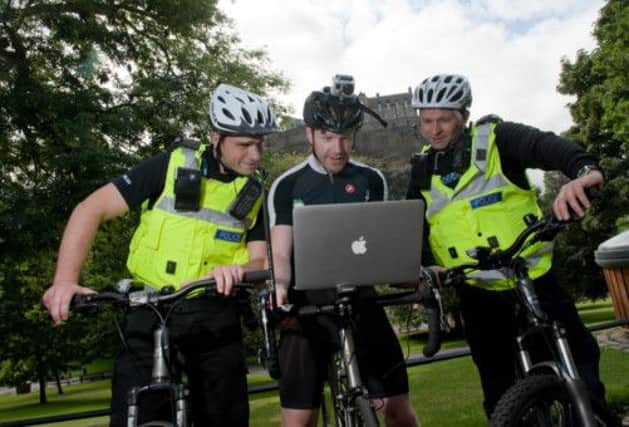Security expert warns Scots over unsecured wifi


James Lyne has been scouring the streets of Edinburgh to test how safe homes, businesses and mobile phones are from rogue hackers.
He used a specially-modified bike to scan for weak and unsecured wireless (wifi) networks in the capital, in a project called “warbiking”.
Advertisement
Hide AdAdvertisement
Hide AdAttackers can join wifi networks secretly and directly attack computers or devices to steal money or information.
They can also view the websites a person has visited, read their emails and capture private information such as passwords.
“If you are a small business or a consumer and your network is wide open, anyone can connect to your network,” Mr Lyne said.
“Once they have their foot in the digital door they can not only piggyback your network but also potentially launch attacks on your personal data.”
The awareness-raising project was organised by the Scottish Business Resilience Centre (SBRC) and IT security company Sophos, with support from Police Scotland.
Mandy Haeburn-Little, director of the SBRC, said: “One in three people in the UK was a victim of e-crime in 2012 and one of the most common risks faced by businesses is poor IT security which potentially allows criminals to raid servers, steal identities and infiltrate bank accounts.
“Whether you are a small cafe, B&B, guest house, gym or a larger corporate operating an insecure wifi network, you leave yourself open to all kinds of criminality.
“It’s easy to make your wifi network more secure by ensuring that it’s password protected, that you are using a firewall and that you change any default settings.”